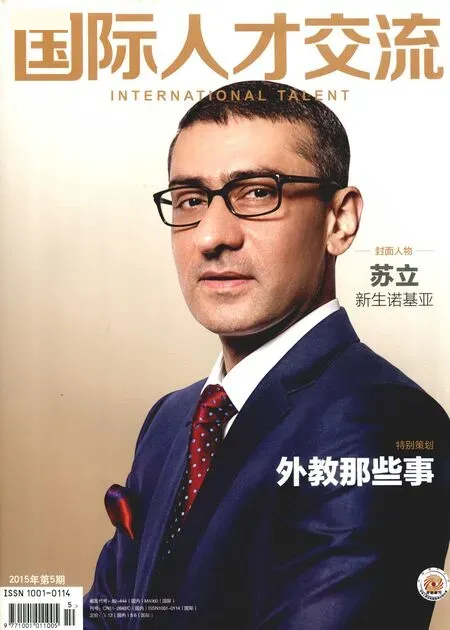Chinese social media apps storm into expats' lives
By Sun Ye
Chinese social media apps storm into expats' lives
By Sun Ye

Dalian is touted as a fashion capital of China and it deserves its name!
Some observant people today may find an interesting trend∶many foreigners around you keep staring at their smart phones wherever they are, just as the Chinese people often do in their spare time. Don't be shocked about the fact that they may well be communicating with others via WeChat or obtaining all kinds of news from their friends' circles, also known as "Moments."
Expats in China perfer to use local social media tools, according to a survey conducted on nearly 20,000 foreign professionals throughout China between July and December by the International Talent magazine and China Society for Research on International Professional Personnel Exchange and Development.
The results also shows that Chinese local social media have gradually penetrated every part of foreigners' lives.
Among all social media, WeChat is the best-received, with a surprising 66.5 percent of foreign users, followed by Facebook (56.6 percent) and Tencent QQ (39 percent). Weibo, a Chinese microblogging platform like Twitter, had less appeal to many foreign professionals, with only 22.4 percent of user frequency.
Meanwhile, factors such as age, educational background and language ability also have some marked influences on choosing social media. For instance, young people tend to choose WeChat, Facebook or Twitter to share their stories. Expats with doctoral degrees, and those sensitive to new information and knowledge, use social media more than any other group. The higher the proficiency of the Chinese language, the more likely foreigners are to use Tencent QQ or Weibo to exchange ideas, while WeChat is immune from the language factor.
The survey also finds that over half of foreigners (52.8 percent) obtain news from their domestic media, with only 28.2 percent getting news from Chinese counterparts. However, an increasing number of foreign professionals get their news via the Chinese media as they grow older.
It is also worth noting that educational background and language ability matter. There are about 57.2 percent of foreigners at the doctorate level choosing Chinese media as their news source, the largest group by educational background. The figures drop to 25.8 percent and 19.6 percent for people with master's and bachelor's degrees, respectively.
Also, with the boom in Mandarin fever, many foreigners have become familiar with Chinese culture. Studies show that 62.1 percent of old hands in China read news from the Chinese media while the percentage drops to 18.2 percent for people who are unable to speak or read Chinese.

